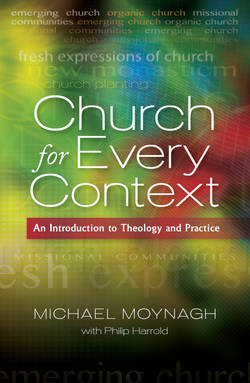Читать книгу Church for Every Context - Michael Moynagh - Страница 46
На сайте Литреса книга снята с продажи.
Questions for discussion
ОглавлениеHow far can Saint Paul be a guide for today?
What might we learn about founding new churches from Jesus?
If you were writing a ‘pastoral epistle’ to a leader of a new contextual church, what points would you make?
1 Matthew 23.15’s reference to scribes and Pharisees proselytizing, the only ancient source that explicitly ascribes a missionary policy to a Jewish group, can be interpreted in four ways, three of which would not imply Jewish mission to the Gentiles. It may refer to the conversion of other Jews to Pharisaism or the attempt to turn God-fearers into full Jews, for example (Bird, 2010, pp. 66–70).
2 This assumes that the apostolic decree was agreed at the same Council and not on a separate occasion, as some scholars believe. For this alternative, see Gooder (2008, p. 19).
3 For these and other reasons for thinking that Paul ‘lost’, see Dunn (2009, pp. 489–94). For a different reconstruction of events, but reaching the same conclusion that Paul ‘lost’, see Hill (1992, pp. 126–47).
4 Paul’s second missionary journey was at his initiative (Acts 15.36) rather than, as with the first, at the initiative of the Antioch church, and – again unlike the first journey – there is no sign that he was commissioned by the church. He appears to have been operating on a more independent basis.
5 Unless otherwise indicated, all quotations from Scripture in this and the other chapters are taken from the New International Version, East Brunswick, NJ: International Bible Society, 1978.
6 Schnabel describes additional journeys to Arabia and Syria/Cilicia between Paul’s conversion and joining Barnabas at Antioch (Schnabel, 2008, pp. 60–71).
7 I am grateful to Peter Walker for this suggestion.
8 Acts 20.4–5. To the seven names listed in verse 4 must be added Luke, referred to as ‘us’ in verse 5.
9 For the high social status of Paul, see for example Schnabel (2008, p. 43).
10 Hock (2007, p. 33) suggests that Paul may well have engaged in spiritual conversations during his leather-work.
11 Additionally, it can also be translated as author, captain, founder or originator.
12 I am grateful to Professor John Drane for pointing this out.
13 Workers might reside on their employer’s property, or craftsmen might rent workplaces which were part of their homes (Gehring, 2004, p. 135).
14 Jewett (2007, pp. 54, 64–5). The idea that families could have removed partitions is contested by Gehring (2004, pp. 149–50), though he accepts that churches could have met in a workshop.
15Catto (2007, p. 104) notes that purpose-built synagogues were constructed when communities were large and wealthy enough, and had sufficient political leverage to get permission to build.
